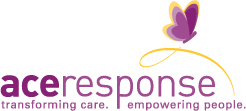Who We Are
FAQs
Frequently Asked Questions
- What is an ACE?
- What does an ACE survey score mean?
- What are the findings of the ACE study?
- What do these findings mean for medical, mental health, substance abuse treatment and social service delivery and for society?
- How does ACE-informed programming, designed to mobilize resilience and recovery, serve to defray costly ACE consequences and prevent ACE transmission to the next generation?
- How can I learn more about ACEs?
What is an ACE? ACE stands for "Adverse Childhood Experiences" and is defined as experiencing any of 10 categories of abuse, neglect, or loss prior to age 18. Specific ACE categories are listed on the ACE Study page.
What does an ACE survey score mean? An ACE survey score is simply the number of categories of adverse childhood experiences (prior to the age of 18). Additional categories might be added to the current list, such as experiencing neighborhood violence or living in a war zone. Integral theory helps us understand how ACEs also co-arise with a variety of inner strengths, or capacities for resilience, as well as an array of possible resources such as healthy social networks or access to services. We can recognize the interplay between risks and resources, and Restorative Integral Support (RIS) can be a useful tool for considering how to bring resources together that will prevent ACEs and ACE consequences.
What are the findings of the ACE study? The ACE Study found that ACE Score is correlated with later life mental health challenges as well as health risk behaviors (including substance abuse) and serious health problems. These include increased risk for depression, suicide attempts, alcoholism, drug abuse, smoking, 50 or more sexual partners, physical inactivity, severe obesity, sexually transmitted disease, increased risk for broken bones, heart disease, lung disease, liver disease, and multiple types of cancer. ACE Score is also associated with impaired job functioning, homelessness, and criminal justice involvement. For more information see the ACE Study page.
What do these findings mean for medical, mental health, substance abuse treatment and social service delivery and for society? ACEs can be taken into account when considering service delivery system arrangements, workforce development, family support, community development, and the potential healing power of social networks in preventing ACEs and ACE consequences. Policy leaders have begun to call for transformation of our systems of care, while program directors begin to lead the way with "ACE-informed" programming specifically designed to mobilize resilience and recovery. See Restorative Integral Support for more information.
How does ACE-informed programming,designed to mobilize resilience and recovery, serve to defray costly ACE consequences and prevent ACE transmission to the next generation? Supporting the development of healthy citizens benefits everyone. Both the mobilization of healthy social networks and interventions geared to address a parent's own ACEs, for example, help to prevent intergenerational ACE transmission. Preventing ACEs and ACE consequences is profitable for society as a whole. Economic research already shows that early intervention programs with disadvantaged children has reduced the cost of services spent on that child $5.70 for every dollar. See Policy for more information.
How can I learn more about ACEs? By continuing to read this website, especially the ACE Study and Restorative Integral Support pages, you will learn more about ACEs and ACE Response strategies that can help to mobilize resilience and recovery, reduce ACE consequences, and prevent intergenerational ACE transmission. You will find in-depth materials on the Links and Resources page. Please contact us if you have any specific questions that are not answered on this website.

